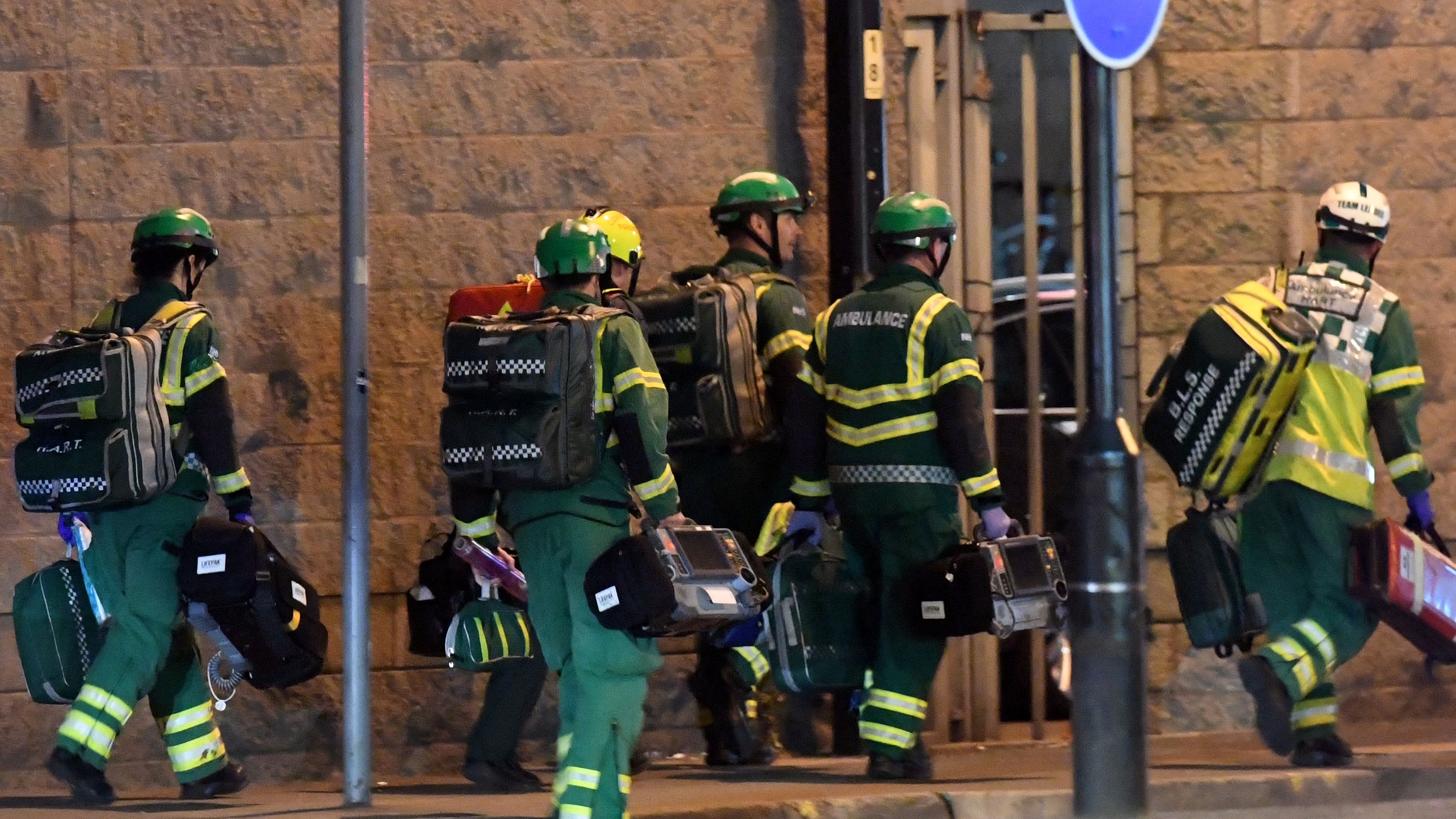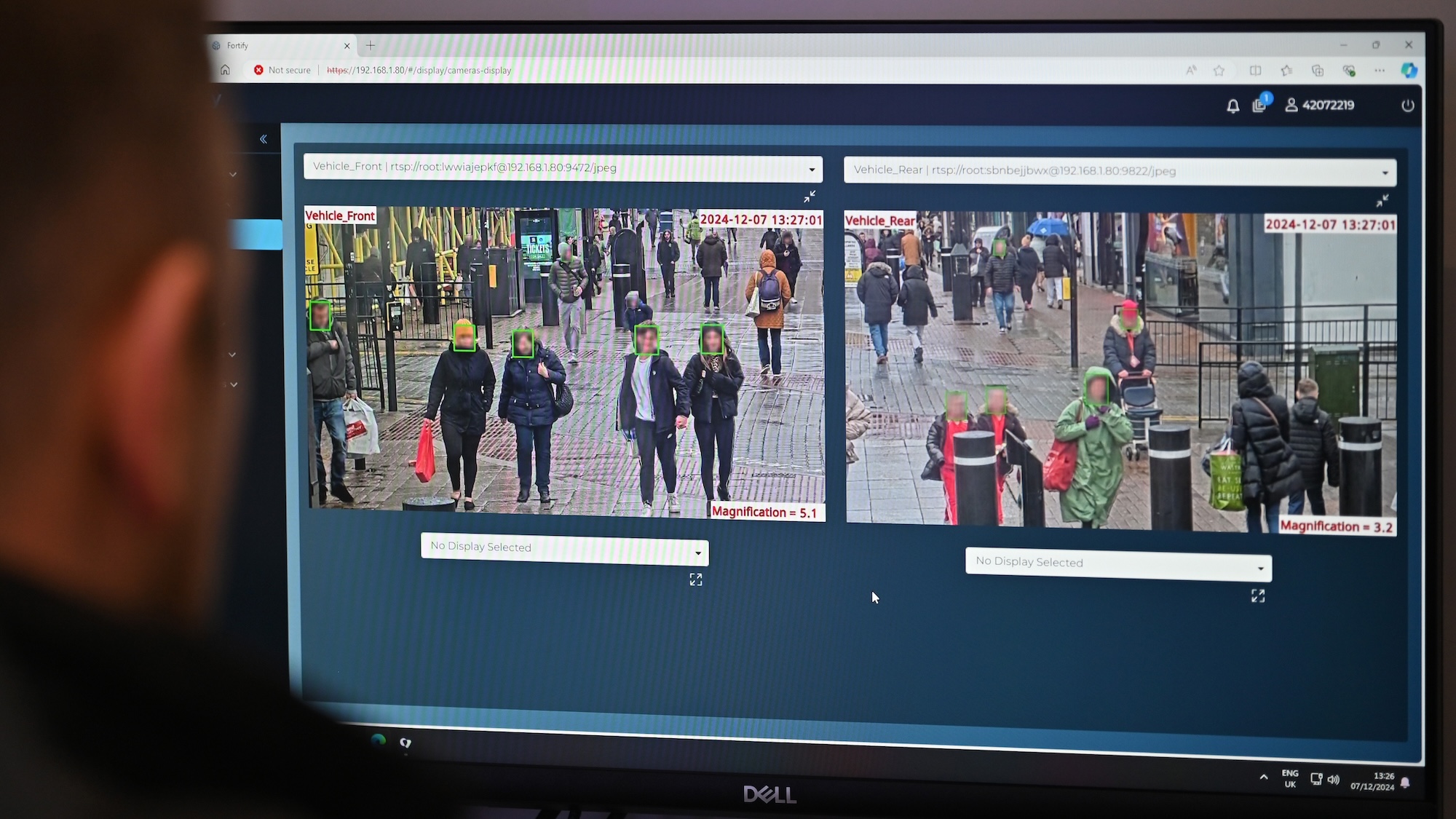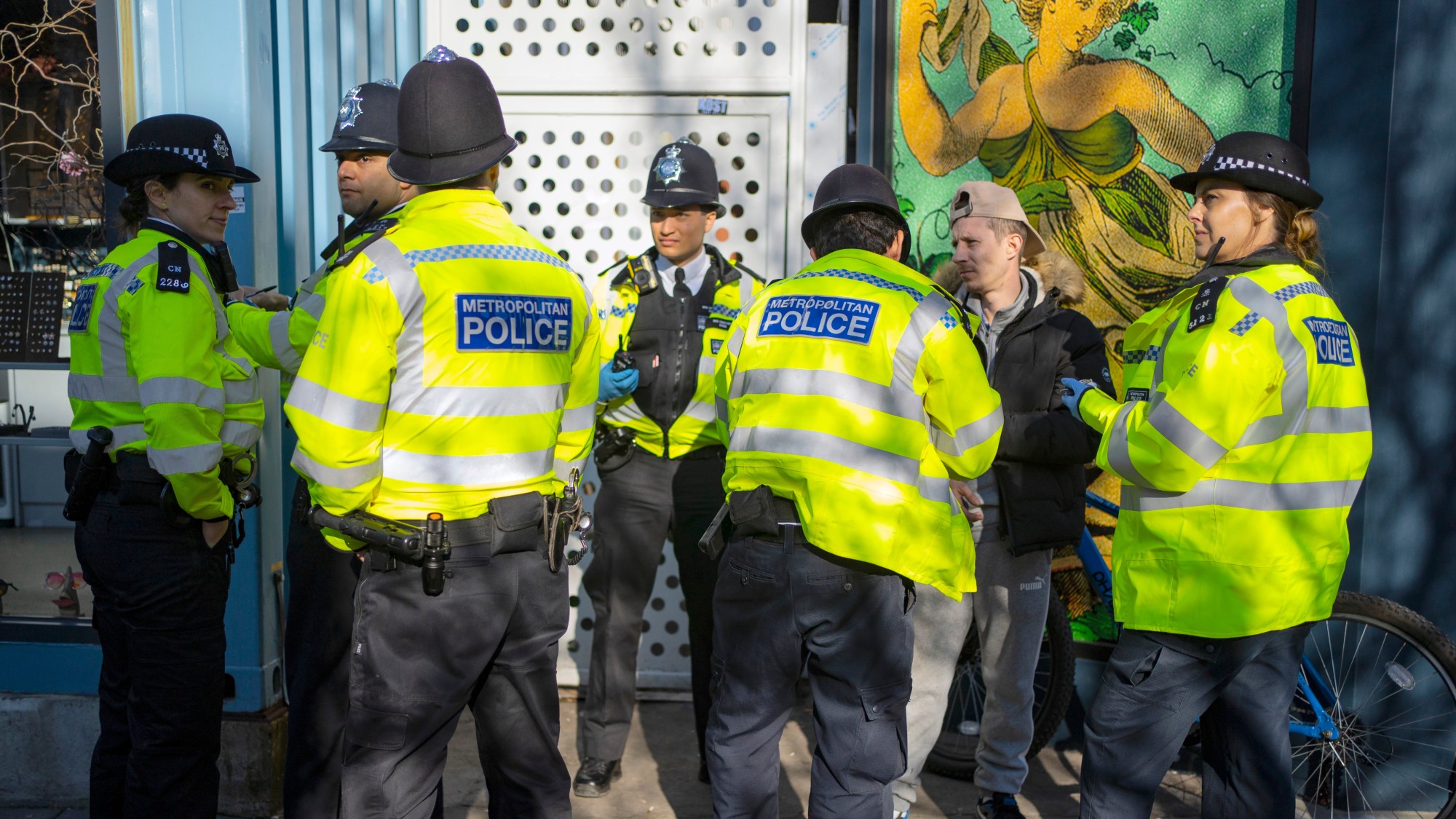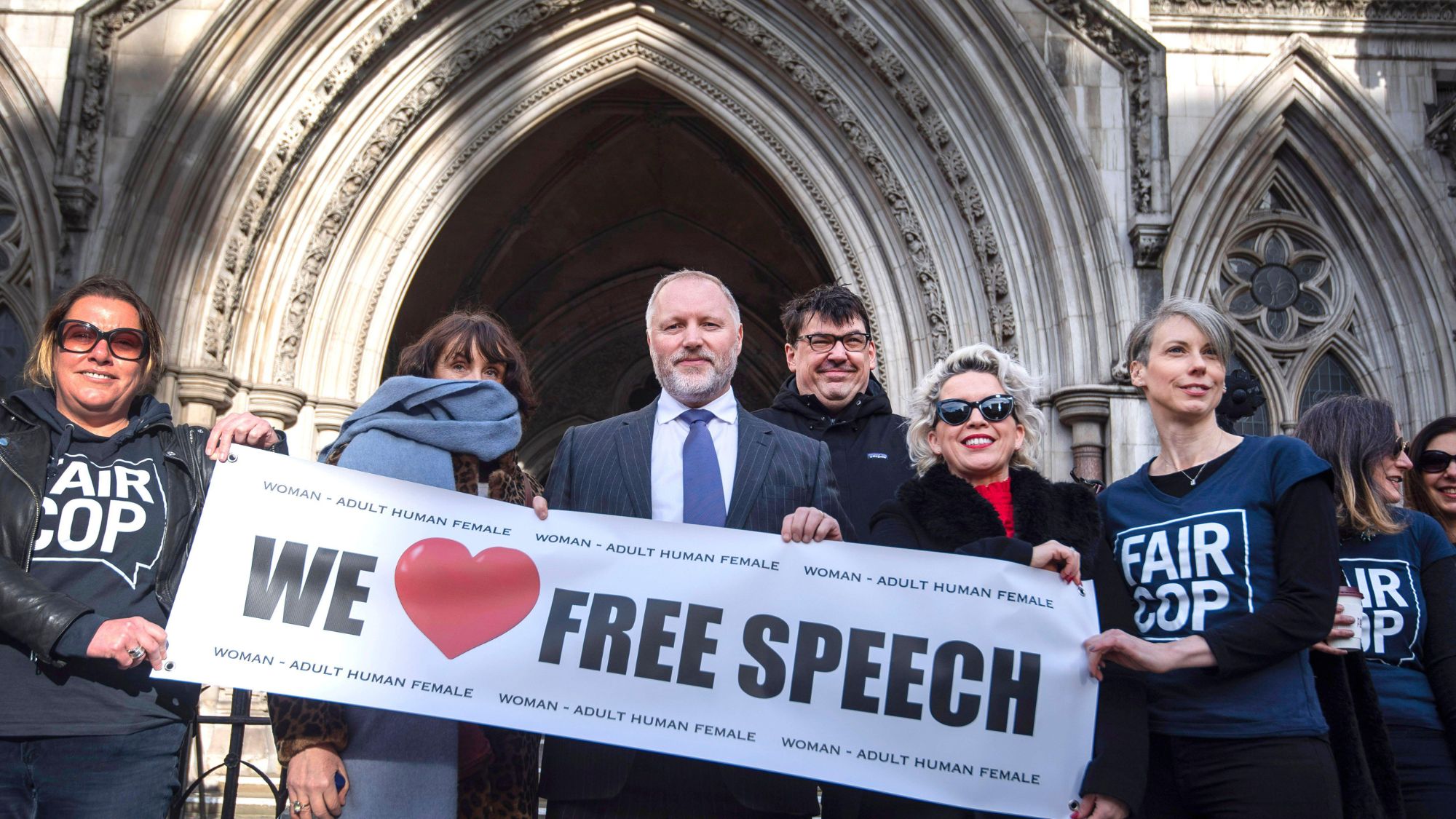How police ‘missed opportunities’ to prevent Manchester Arena bombing
Inquiry into terror attack that claimed 22 lives reveals litany of security failings

A free daily email with the biggest news stories of the day – and the best features from TheWeek.com
You are now subscribed
Your newsletter sign-up was successful
The “devastation” of the Manchester Arena bombing might have been avoided but for “serious shortcomings” in security, an inquiry into the terror attack has concluded.
In a newly published report, inquiry chair John Saunders blames “failings by individuals” for “missed opportunities” to detect and stop bomber Salman Abedi, the Islamist radical who killed 22 people in the blast at an Ariana Grande concert on 22 May 2017.
Saunders has outlined a “litany” of failures by venue operators SMG, security firm Showsec and British Transport Police (BTP), says The Times - failures that include taking unauthorised two-hour meal breaks and ignoring members of the public who tried to raise the alarm.
The Week
Escape your echo chamber. Get the facts behind the news, plus analysis from multiple perspectives.

Sign up for The Week's Free Newsletters
From our morning news briefing to a weekly Good News Newsletter, get the best of The Week delivered directly to your inbox.
From our morning news briefing to a weekly Good News Newsletter, get the best of The Week delivered directly to your inbox.
Reconnaissance oversights
Abedi went to the arena several times to “carry out hostile reconnaissance” in the run-up to the bombing, visiting on 18 and 21 May and also the afternoon on the day of the attack, the inquiry report says.
Although arena operator SMG and security firm Showsec “had experience of identifying and responding to potential hostile reconnaissance effectively”, the system for passing on information about suspicious behaviour was “insufficiently robust”, the report continues.
If the Showsec staff on duty at the time, Kyle Lawler and Mohammed Agha - then aged 18 and 19 respectively - had been aware of previous reports of suspicious activity, “it would have increased the possibility” of Abedi being spotted.
A free daily email with the biggest news stories of the day – and the best features from TheWeek.com
Inquiry chair Saunders also notes that SMG could have extended the permitted security perimeter from the entrance doors of the arena to the City Room, the foyer where the bomb detonated. “Had permission to push out the perimeter been granted, an attack in the City Room would have been much less likely,” the report says.
Absence of officers
Despite five officers being assigned to the arena on the night of the attack, “there was a complete absence of any BTP officer in the City Room” in the half hour before Abedi detonated the bomb, at 10.31pm, according to the report. And no officers were policing the public areas of the venue between 8.58pm and 9.36pm.
The report found that BTP officers “took breaks substantially and unjustifiably” longer than their authorised one hour. Instructions to stagger breaks between 7.30pm and 9pm - when as The Times notes, “younger children could be leaving the venue” - were also ignored.
The public inquiry into the attack had previously heard how two officers on duty at the concert, PC Jessica Bullough and PCSO Mark Renshaw, had taken a “two-hour-and-nine-minute dinner break to get a kebab five miles from the arena”, The Telegraph reports. Bullough “has since admitted that were she present on her shift as she should have been, she would have likely stopped Abedi and asked him what was in his bag”, the newspaper adds.
CCTV blindspot
Saunders' report says Abedi chose an “obvious hiding place” in a CCTV blindspot of the arena City Room foyer, having “no doubt identified this area during his hostile reconnaissance”.
“Had the area been covered by CCTV so that there was no blind spot, it is likely this behaviour by SA [Salman Abedi] would have been identified as suspicious by anyone monitoring the CCTV,” the reports says.
Giving evidence to the inquiry last October, Showsec security guard Agha said that he had noticed Abedi in the City Room, but only because he “liked the look” of Abedi's trainers, as The Manchester Evening News reported at the time.
Inadequate patrols
The inquiry report says that a “further missed opportunity” to spot Abedi in the half hour before the bomb detonated “arose from the absence of an adequate security patrol by Showsec at any stage during this time”.
The supervisor charged with carrying out “pre-egress” checks, Jordan Beak, did so “only very briefly”, patrolling for about ten minutes, during which he just “looked towards the staircases up to the mezzanine area”, where Abedi was sitting.
“He did not consider them a very important part of the check because it was not an egress route,” the report continues. “Mr Beak did not go up on to the mezzanine area and so he did not see Abedi. This was a significant missed opportunity.”
Concerns ‘fobbed off’
Saunders wrote that the “most striking missed opportunity, and the one that is likely to have made a significant difference”, was an attempt by a member of the public to raise concerns about Abedi after becoming suspicious about the bomber's large and obviously heavy backpack.
Christopher Wild told the inquiry last year how he spotted Abedi while waiting for his 14-year-old daughter to leave the concert.
According to the BBC, Wild recalled how he approached Abedi and said: “It doesn't look very good you know, what you see with bombs and such, you with a rucksack in a place like this, what are you doing?” Abedi reportedly told Wild that he was “waiting for somebody, mate”, before asking what time it was.
Wild alerted security guard Agha about his suspicions around fifteen minutes before the blast. But according to the inquiry report, Agha “did not take Christopher Wild’s concerns as seriously as he should have”. Wild felt that he had been “fobbed off” by the guard, who claimed to already be aware of Abedi. Agha is said to have made “inadequate” efforts to flag down his supervisor or pass on the message via his colleague Lawler, who had a radio.
And although Agha did share Wild’s concerns with Lawler, the latter “felt conflicted about what to do” and “stated he was fearful of being branded a racist and would be in trouble if he got it wrong”, the report says. Lawler ultimately made an attempt to contact a senior supervisor through the radio, but couldn’t get through, “and made no further efforts to communicate what he had been told to anyone else”.
“The inadequacy of Mr Lawler’s response was a product of his failure to take Mr Wild’s concern and his own observations sufficiently seriously,” Saunders wrote. “Mr Wild’s behaviour was very responsible. He stated that he formed the view that [Abedi] might ‘let a bomb off'.
“That was sadly all too prescient and makes all the more distressing the fact that no effective steps were taken as a result of his efforts.”
Sorcha Bradley is a writer at The Week and a regular on “The Week Unwrapped” podcast. She worked at The Week magazine for a year and a half before taking up her current role with the digital team, where she mostly covers UK current affairs and politics. Before joining The Week, Sorcha worked at slow-news start-up Tortoise Media. She has also written for Sky News, The Sunday Times, the London Evening Standard and Grazia magazine, among other publications. She has a master’s in newspaper journalism from City, University of London, where she specialised in political journalism.
-
 Political cartoons for February 15
Political cartoons for February 15Cartoons Sunday's political cartoons include political ventriloquism, Europe in the middle, and more
-
 The broken water companies failing England and Wales
The broken water companies failing England and WalesExplainer With rising bills, deteriorating river health and a lack of investment, regulators face an uphill battle to stabilise the industry
-
 A thrilling foodie city in northern Japan
A thrilling foodie city in northern JapanThe Week Recommends The food scene here is ‘unspoilt’ and ‘fun’
-
 Why have homicide rates reportedly plummeted in the last year?
Why have homicide rates reportedly plummeted in the last year?Today’s Big Question There could be more to the story than politics
-
 How the ‘British FBI’ will work
How the ‘British FBI’ will workThe Explainer New National Police Service to focus on fighting terrorism, fraud and organised crime, freeing up local forces to tackle everyday offences
-
 ‘Stakeknife’: MI5’s man inside the IRA
‘Stakeknife’: MI5’s man inside the IRAThe Explainer Freddie Scappaticci, implicated in 14 murders and 15 abductions during the Troubles, ‘probably cost more lives than he saved’, investigation claims
-
 3 officers killed in Pennsylvania shooting
3 officers killed in Pennsylvania shootingSpeed Read Police did not share the identities of the officers or the slain suspect, nor the motive or the focus of the still-active investigation
-
 Dash: the UK's 'flawed' domestic violence tool
Dash: the UK's 'flawed' domestic violence toolThe Explainer Risk-assessment checklist relied on by police and social services deemed unfit for frontline use
-
 The ethics behind facial recognition vans and policing
The ethics behind facial recognition vans and policingThe Explainer The government is rolling out more live facial recognition technology across England
-
 The Met police's stop and search overhaul
The Met police's stop and search overhaulThe Explainer More than 8,500 Londoners have helped put together a new charter for the controversial practice
-
 NCHIs: the controversy over non-crime hate incidents
NCHIs: the controversy over non-crime hate incidentsThe Explainer Is the policing of non-crime hate incidents an Orwellian outrage or an essential tool of modern law enforcement?